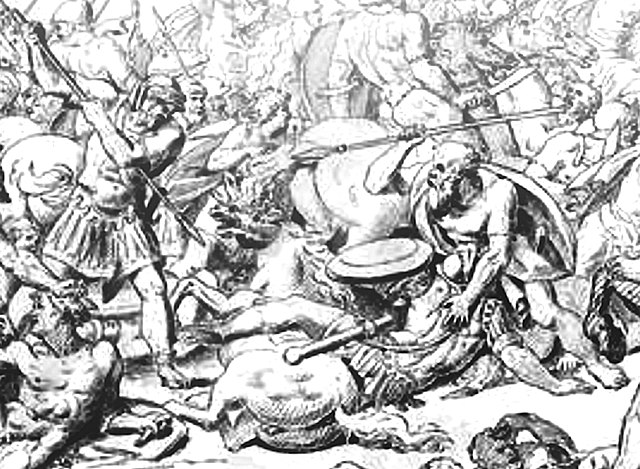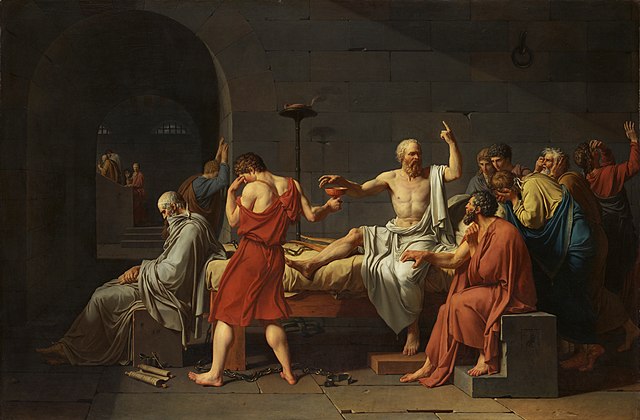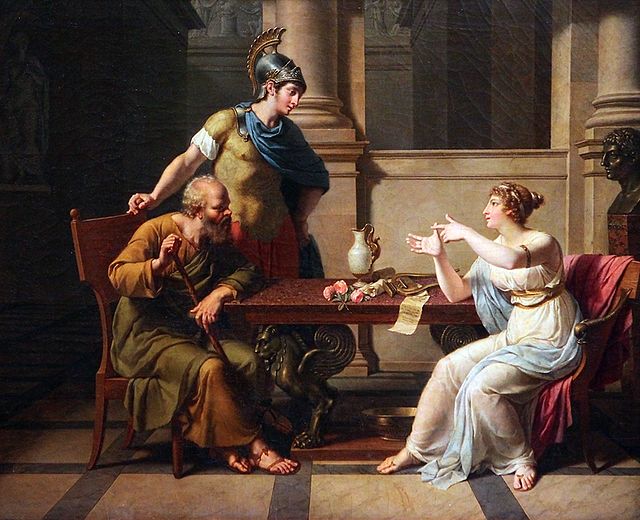Xanthippe was an ancient Athenian, the wife of Socrates and mother of their three sons: Lamprocles, Sophroniscus, and Menexenus. She was likely much younger than Socrates, perhaps by as much as 40 years.
Xanthippe from Guillaume Rouillé's Promptuarii Iconum Insigniorum
Socrates, his two Wives, and Alcibiades, by Reyer van Blommendael. Instead of a chamberpot, Xanthippe douses her husband with cold water from a hydria.
An emblem book print portraying Xanthippe emptying a chamber pot over Socrates, from Emblemata Horatiana illustrated by Otho Vaenius, 1607.
Socrates was a Greek philosopher from Athens who is credited as the founder of Western philosophy and among the first moral philosophers of the ethical tradition of thought. An enigmatic figure, Socrates authored no texts and is known mainly through the posthumous accounts of classical writers, particularly his students Plato and Xenophon. These accounts are written as dialogues, in which Socrates and his interlocutors examine a subject in the style of question and answer; they gave rise to the Socratic dialogue literary genre. Contradictory accounts of Socrates make a reconstruction of his philosophy nearly impossible, a situation known as the Socratic problem. Socrates was a polarizing figure in Athenian society. In 399 BC, he was accused of impiety and corrupting the youth. After a trial that lasted a day, he was sentenced to death. He spent his last day in prison, refusing offers to help him escape.
A marble head of Socrates in the Louvre (copy of bronze head by Lysippus)
Battle of Potidaea (432 BC): Athenians against Corinthians (detail). Scene of Socrates (center) saving Alcibiades. 18th century engraving. According to Plato, Socrates participated in the Battle of Potidaea, the retreat of Battle of Delium and the battle of Amphipolis (422 BC).
The Death of Socrates, by Jacques-Louis David (1787). Socrates was visited by friends in his last night at prison. His discussion with them gave rise to Plato's Crito and Phaedo.
The Debate of Socrates and Aspasia by Nicolas-André Monsiau. Socrates's discussions were not limited to a small elite group; he engaged in dialogues with foreigners and with people from all social classes and of all genders.







